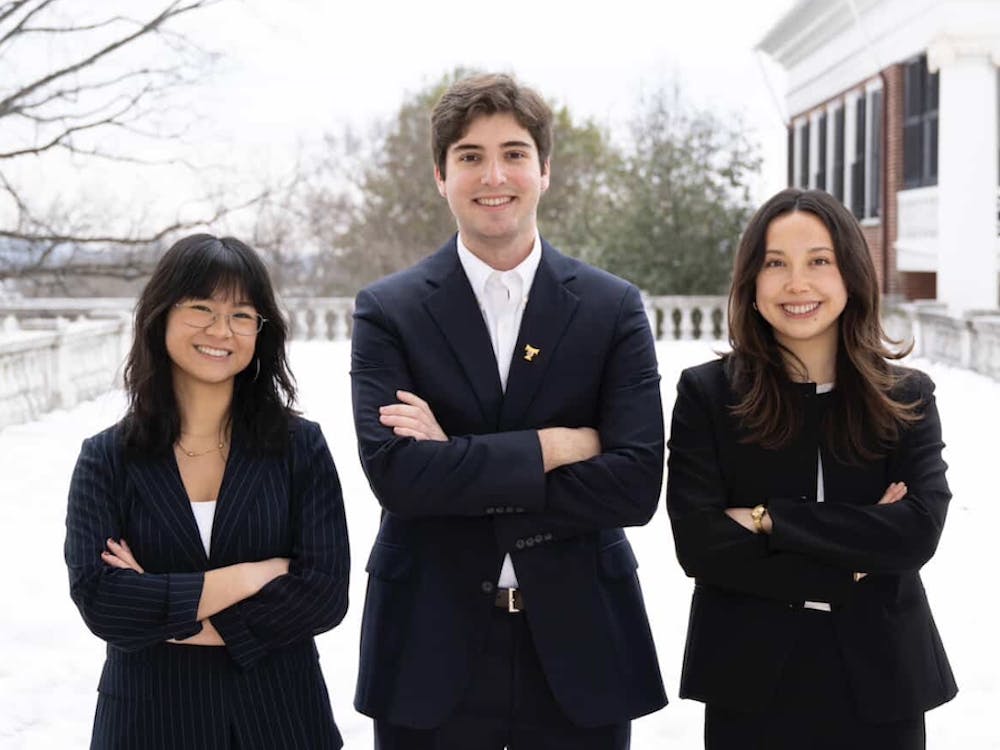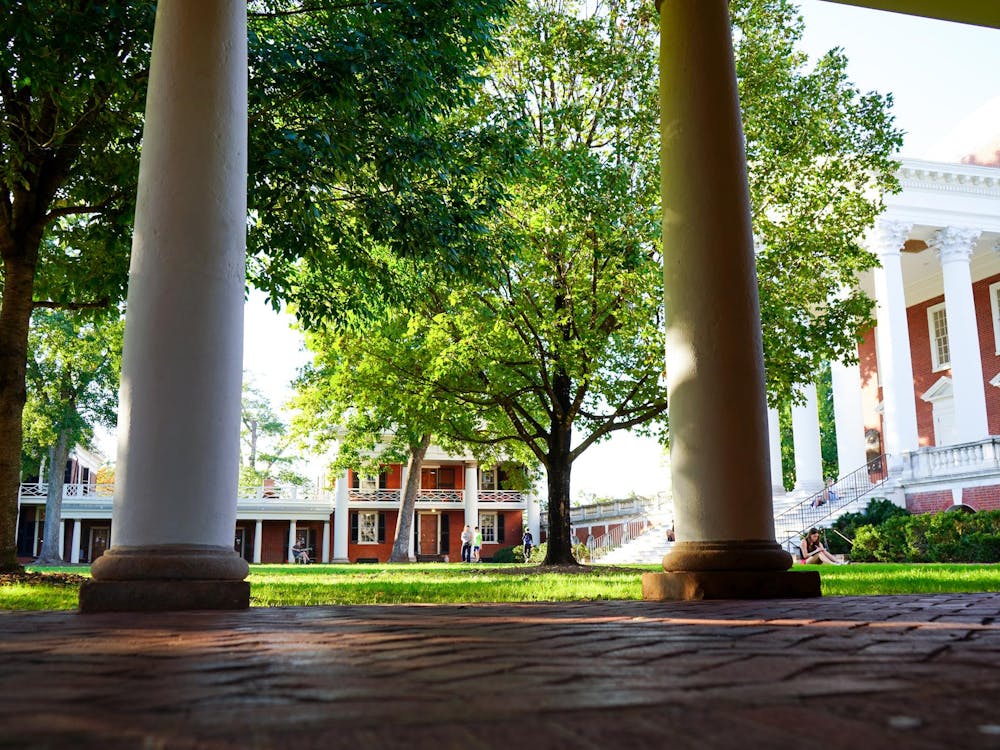Physics Professor Louis Bloomfield's 149 honor cases have presented a major challenge to the University's Honor Committee over the last eight months, but, they could be symptoms of an even more serious epidemic.
According to information obtained by The Cavalier Daily from the Honor Committee, Bloomfield's computer program, which checks for matching strings of words in students' papers, could have found 238 more cases of cheating under different standards.
Bloomfield's program, which he wrote himself, locates strings of six words or more that are exactly alike among in students' papers turned in over the last six semesters.
His data indicate that he found 78 pairs of papers with 100-199 matching words, 18 pairs with 200-299 matching words, 11 pairs with 300-399 matching words and 12 pairs with 400-499 words.
The new numbers of implicated papers have raised some eyebrows among Honor officials.
"I'm concerned about how Louis Bloomfield is handling the information he has," said fourth-year Honor counsel David Metcalf in an e-mail. He said he believes there are many more cases of cheating involved and Bloomfield is simply choosing not to initiate all of them.
Metcalf is involved in defending some of the accused students in the Bloomfield trials.
"If Bloomfield is right, and six-string word matches are highly unlikely, then two papers sharing 100 words would ... constitute clear cheating" as much as would a match of 500 words, Metcalf said. "Why has he not initiated these cases?"
Bloomfield originally initiated only 122 Honor cases in April and the number since has increased to 149.
"I learn more about my data every day," Bloomfield said. "The program doesn't tell if the matches are in quotes or in bibliographic references. I have to look at these things."
He said he cannot be sure if he will initiate any more cases based on his current data.
The numbers of additional possible cases were counted after an accused student's outside professional legal counsel approached Bloomfield with a Freedom of Information Act request that forced him to compile the full list of data and submit it to the Honor Committee. Proof that Bloomfield is unfairly submitting some but not all cases could help in accused students' defense.
However, the statistics do not necessarily provide conclusive proof.
"You can't judge just based on the numbers," Bloomfield said. "Interpretation [of raw numbers] is impossible. By themselves they don't mean anything. They are way more complicated than they superficially appear."
Each matching pair of papers does not necessarily represent two separate cheating students, he said. For example, if three students copied a paper off the same Internet site, their papers would match each other as well as the site.
"A lot of the lesser matches have already been turned in" because they may also have been implicated in matches with higher word counts, Bloomfield said.
Initially, Bloomfield only filed cases with matches of 500 words or more.
"Since September - since some honor counsel pointed out at trial that he was, in effect, defining seriousness ... - he has initiated cases below 500 words," Metcalf said, emphasizing that not all of the cases were initiated.
The initial "500-word threshold was arbitrary," Committee Chairman Thomas Hall said. But Bloomfield has initiated cases well below that threshold since he began the process in April, including one case involving a student from this fall's class, he said.
"I unequivocally believe Professor Bloomfield initiated every case he feels is worth bringing to the Honor Committee," he added.
"I'm trying to be as fair as possible. I'm not the judge and jury," Bloomfield said.
"There aren't that many people involved. And most people that really violated the honor code are being dealt with," he said. "Though, there is probably a small group that is slipping by."
But, some people involved in the proceedings are still skeptical. Metcalf said he knows of other counsel who share his views, but declined to give additional names.
The total number of matches is high - "does [that] not say something about Bloomfield, his class and the culture of cheating he created there?" Metcalf said.
"That's the line. And it's not true at all," Bloomfield said. "The idea of a culture of cheating - it's nonsense."
"In any larger class, anonymity breeds feelings of security," Hall said. But any accusations that Bloomfield's class creates an atmosphere of cheating "are absolutely false, in my opinion," he said.
In comparison to the full, total number of students in Bloomfield's "How Things Work" class over the last six semesters, 149 cases represents a small percentage, he added. "I don't think it's evidence of a larger problem"






